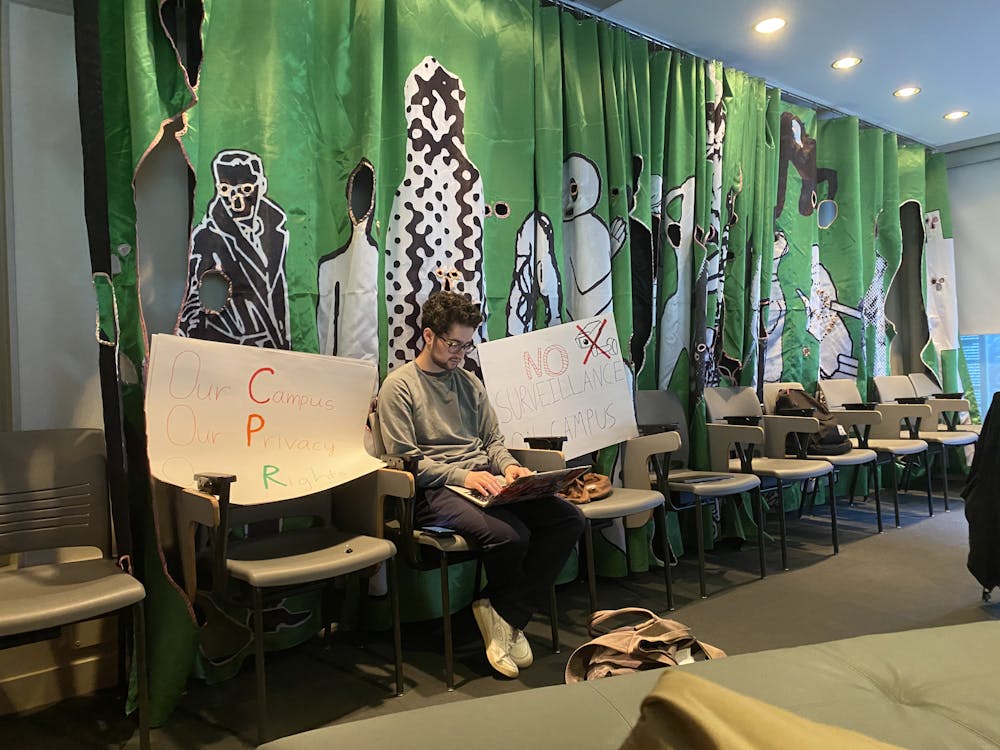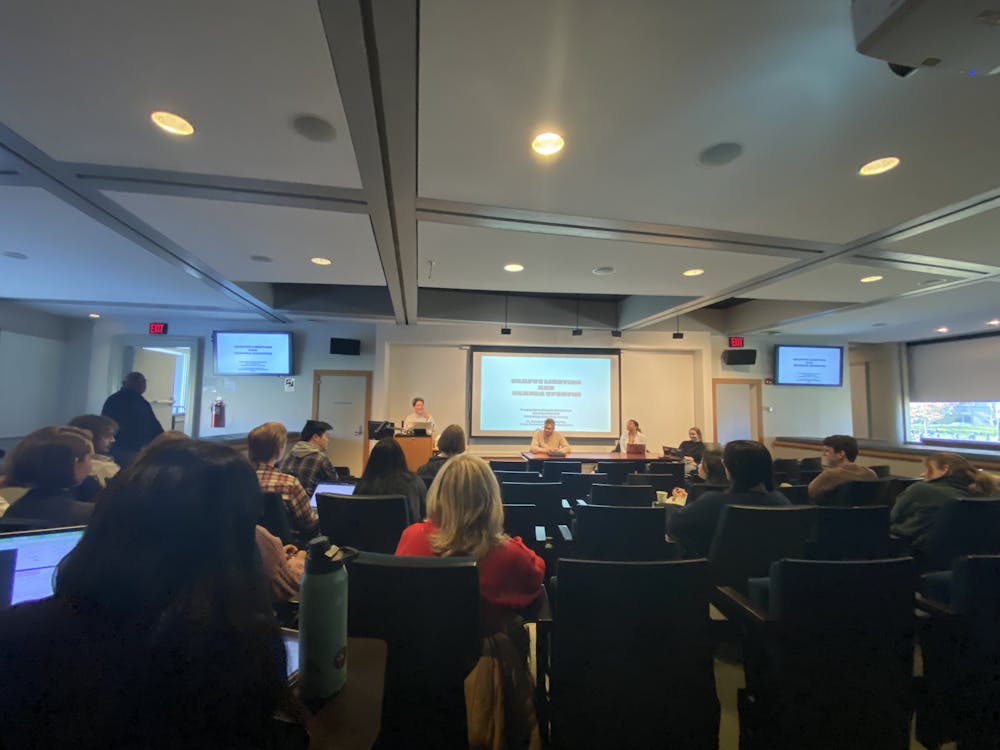“You need to use every tool you can to keep the safety of the members of your community,” said Vice President for Campus Life, W. Rochelle Calhoun, addressing the Undergraduate Student Government (USG) about a new campus policy regarding security cameras.
The policy would place security cameras “at all exterior doorways in undergraduate residential college buildings and dorms,” based on recommendations from the Environmental Safety and Risk Management (ESRM) committee.
Students and student groups have voiced opposition to the policy, citing concerns about privacy and an overreach on the part of the University. A representative from Students for Prison Education, Abolition, and Reform (SPEAR) was present at Sunday’s meeting in protest of what some perceive to be an expansion to campus surveillance.

A representative from Students for Prison Education, Abolition, and Reform (SPEAR) protested the new campus security policy, which calls for the installation of cameras at all exterior doorways.
Nandini Krishnan / The Daily Princetonian
The change comes, Calhoun explained, given that last fall the ESRM committee “received a request to expand the camera program on campus”— however, it was clarified that security camera review began the previous spring.
Calhoun spoke to the USG along with Ken Strother, Assistant Vice President for Public Safety to answer questions from senate members and other students in attendance. Strother explained that cameras would have a narrow field of vision limited to the doorway itself and that only two individuals, one being himself, had the authority to allow the usage of security camera footage during an investigation.

Students asked questions about when camera footage would be used, long-term policy, and bias, expressing concern over safety and well-being on campus.
“This is not a surveillance system — a surveillance system is cameras running all the time and someone is literally watching that film all the time,” said Calhoun. Calhoun clarified that camera footage would only be reviewed “post-incident” as a tool in an investigation that is already running. It was also later clarified that footage may also be used in emergency situations.
Treasurer Walker Penfield ’25 explained that USG data showed “that students did not want cameras in residential areas and in fact, were most interested in cameras in heavily walked-up areas of campus” and asked for an explanation of the disparity between student desires and the eventual outcome of the policy.
Calhoun said that student opinions were “among the inputs gathered.”

“It was taken into consideration. I have to say honestly, the most telling piece … was the concern about privacy and really wanting to honor that,” said Calhoun.
Undergraduate Student Life Committee Chair Caitlin McNally ’24 asked about policy safeguards for students who might get caught secondarily as a part of an investigation — for example, if the camera “captures somebody on camera with a drink or smoking out in public or outside their buildings.”
Calhoun said that “the vast majority of the time we stay focused on that incident that we are investigating,” but that sometimes “the secondary thing is actually serious.” With regards to the reflection of this in long-term policy, Calhoun explained it might be “something to look into.”
Diversity, Equity, and Inclusion (DEI) Chair Uma Fox ’26 and Class of 2024 Senator Noah Luch ’24 asked questions about safeguards against implicit bias, accountability, and profiling that might occur when reviewing footage, especially given that only two people authorize its usage.
Strother explained that “because they are looking for people who are committing violations of the law, if a person isn’t committing a violation of the law, then there isn't any investigation of them.” Calhoun emphasized that all administrators undergo implicit bias training.
USG meetings are held every Sunday from 4 p.m. to 5 p.m. and are open for all students to attend.
Nandini Krishnan is a Staff writer for the ‘Prince.’
Please send any corrections to corrections[at]dailyprincetonian.com.








